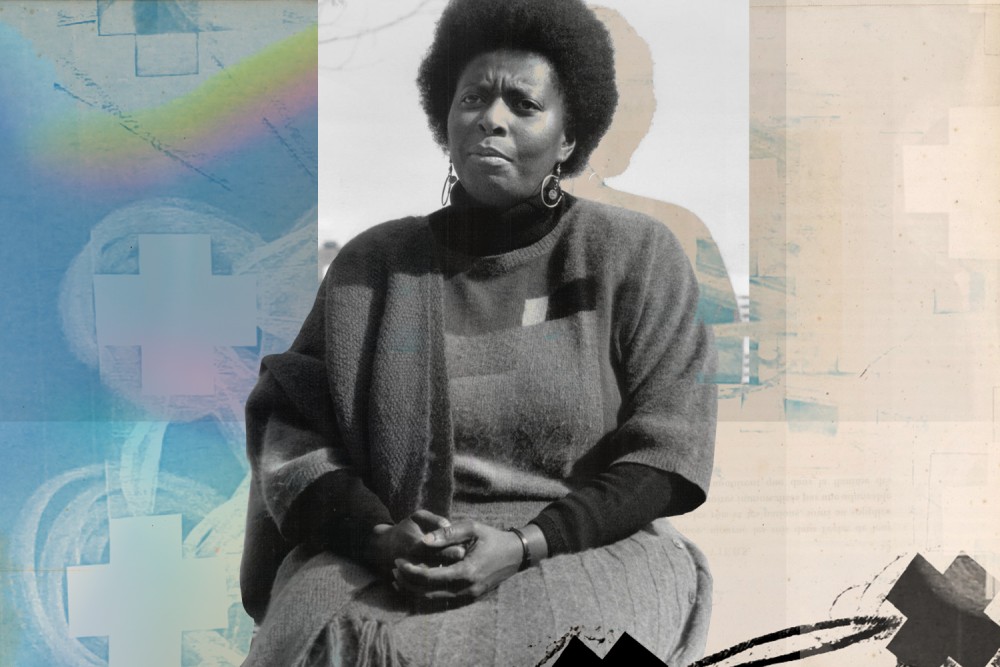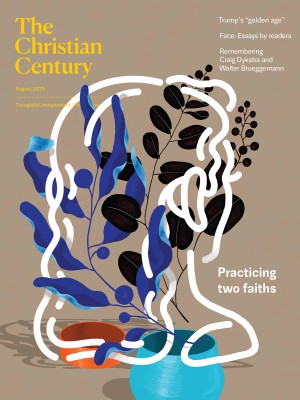A sanctuary for banned stories
When truth is being cast as lies, the sacred work of storytelling is urgent.

Womanist ethicist Katie Cannon (Source image courtesy of Union Theological Seminary)
What happens when your truth becomes a lie?
This question, explored by womanist ethicist Katie Cannon, captures the lived experience of Black women whose realities have long been disbelieved, marginalized, or erased. Cannon describes how the academy—shaped by Western patriarchal norms of knowledge—dismissed her story, and the intersecting oppressions of racism and sexism that shape Black women’s experience, as irrelevant to the pursuit of truth. For Cannon and for other womanist scholars, the truth of Black women’s experience is not superfluous to knowledge making—it is fundamental.
Today, as diversity, equity, and inclusion initiatives are summarily dismantled and the stories of those who have struggled for justice and equality are purged from our social, cultural, and educational institutions, there is a dangerous acquiescence to the condition Cannon named. Once again, the truths of Black women—along with others who have resisted the forces of racism, sexism, heterosexism, classism, and other systemic injustices—are being cast as lies. This is not simply an educational or historical issue; it reflects a theological concern and moral crisis.
Read our latest issue or browse back issues.
To erase these stories is to erase the very struggle that has kept US democracy alive. As historian Nikole Hannah-Jones reminds us, “our founding ideals of liberty and equality were false when they were written. Black Americans fought to make them true. Without this struggle, America would have no democracy at all.” Those who have fought for freedom—from abolition to civil rights to women’s equality, economic justice, and LGBTQ rights—have not only sought their own rights and freedoms; they have fought to redeem the American project itself. Eliminating their stories denies the validity of the ongoing struggle to realize democracy, and in so doing, it lies about our past, our present, and our potential future.
This purging of history is an anti-democracy project. It is an intentional relinquishment of the democratic vision—a relinquishing not just of the facts of history but of the people who made history through their witness and resistance. It is a lie about who we are and a refusal to even aspire toward becoming a nation of liberty and justice for all.
The stories we tell, or refuse to tell, matter. Eliminating these narratives of struggle guarantees that the next generation will not be better than the present generation in making justice and equality a reality for all; likely it will be worse. Yet the consequences are even more dire than that. Silencing these stories does not just distort history and jeopardize the future possibilities for a democracy—it imperils lives in the present.
When a people’s truth is made a lie, their very lives are rendered expendable. When their stories do not matter, neither do their lives.
We have seen this historically with Black lives, and we see it now in other communities across the globe. To refuse the truth of apartheid is to diminish the humanity of Black South Africans. To deny the truth of the Holocaust is to deny the humanity of Jewish people. To silence the story of the Nakba is to discount the humanity of Palestinian people. To erase these narratives is to make people more vulnerable to racism, antisemitism, anti-immigrant hatred, Islamophobia, and various other forms of violent dehumanization.
The theological imperative is clear. Storytelling is an essential part of the sacred work religious institutions must do.
The exodus narrative reveals that telling God’s story means telling the story of the oppressed as they cry out and struggle for freedom. This is a God who hears the cries of the oppressed and calls us to partner with God in a movement for liberating justice. Such a partnership requires that churches and other institutions of faith become sanctuaries—not only for oppressed, marginalized, and minoritized people, but for their stories. Religious institutions must preserve and tell the stories of those who have struggled for dignity, respect, and freedom. The stories banned from our schools, libraries, academies, and various other social institutions are sacred stories. They must find a home within our religious institutions. We must be keepers of truth in a time of suppression. To do otherwise is to disavow the truth of a people’s sacred story and to endanger their very living.
Keeping these stories alive keeps the people alive. It keeps alive the vision of a democracy. And more than that, it keeps alive God’s vision for a more just future.
In the end, Katie Cannon admonished, “even when they call your truth a lie, tell it anyway! Tell it anyway!” This is our theological and ethical mandate.






